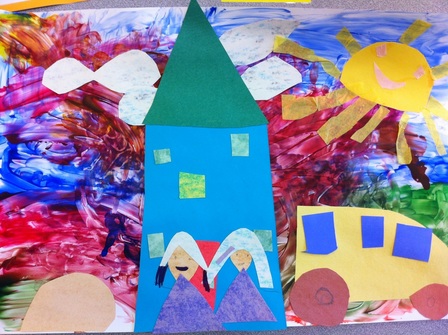Umbrella Learning Objectives (Essential Questions):

Reading:
What is a reader? How does a reader behave?
How do we become a reading community?
What types of books (genre) do readers read?
How and why do readers talk about books?
How can we read a story if we can’t read the words?
How do patterns in books help us read and talk about books?
Writing:
How do I become a writer?
What does an independent writer look and sound like?
How does drawing and writing help me share my thoughts with others?
How can I make my writing easy to understand? How do I share my writing with others?
Math:
What is math?
How do you accurately count a set of objects?
How do you sort and classify objects?
What makes a pattern?
Science:
What does a scientist do?
What are the Five Senses?
How do humans use their senses to observe the environment?
What properties can be observed with the senses?
How can objects be sorted into groups based on one (or more) of their properties of matter?
Can objects be described and sorted based on the results of simple tests?
Do our senses make it possible to observe and describe their similarities and differences?
Social Studies:
How does Social Studies help us understand ourselves and our world?
How do literacy, inquiry, and research skills help us analyze, evaluate, and present Social Studies information?
How does using information, skills, and perspective help us analyze historical and current issues?
Language/Purposeful Play: (I can...)
I can engage in preferred and some non-preferred activities for longer periods of time.
I can plan and complete learning activity with a peer.
I can model or teach peers how to use materials or complete a task.
I can recall and follow daily routines with little support, including adapting to changes in rules and routines.
I can tolerate small levels of frustration and disappointment, displaying appropriate behavior with adult prompting and support.
I can cooperate with peers through sharing and taking turns.
What is a reader? How does a reader behave?
How do we become a reading community?
What types of books (genre) do readers read?
How and why do readers talk about books?
How can we read a story if we can’t read the words?
How do patterns in books help us read and talk about books?
Writing:
How do I become a writer?
What does an independent writer look and sound like?
How does drawing and writing help me share my thoughts with others?
How can I make my writing easy to understand? How do I share my writing with others?
Math:
What is math?
How do you accurately count a set of objects?
How do you sort and classify objects?
What makes a pattern?
Science:
What does a scientist do?
What are the Five Senses?
How do humans use their senses to observe the environment?
What properties can be observed with the senses?
How can objects be sorted into groups based on one (or more) of their properties of matter?
Can objects be described and sorted based on the results of simple tests?
Do our senses make it possible to observe and describe their similarities and differences?
Social Studies:
How does Social Studies help us understand ourselves and our world?
How do literacy, inquiry, and research skills help us analyze, evaluate, and present Social Studies information?
How does using information, skills, and perspective help us analyze historical and current issues?
Language/Purposeful Play: (I can...)
I can engage in preferred and some non-preferred activities for longer periods of time.
I can plan and complete learning activity with a peer.
I can model or teach peers how to use materials or complete a task.
I can recall and follow daily routines with little support, including adapting to changes in rules and routines.
I can tolerate small levels of frustration and disappointment, displaying appropriate behavior with adult prompting and support.
I can cooperate with peers through sharing and taking turns.
Click on the links below to find our Kindergarten Curriculum Timelines and Units of Study.
